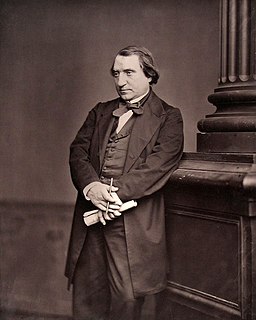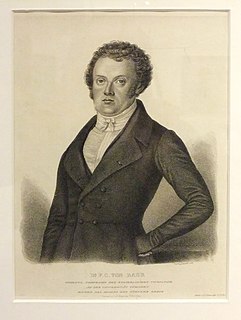A Quote by Robert M. Price
Though [Charles Guignebert] could not accept either the Christ myth theory, which held that no historical Jesus existed, or the Dutch Radical denial that Paul authored any of the epistles, Guignebert took both quite seriously.
Related Quotes
Often the Jesus-focused churches are leaning towards a 'social gospel' interpretation of the kingdom, and the 'Paul' churches are talking about being saved from sin and going to heaven. But when we understand both Jesus and Paul in their historical contexts within the first-century Jewish world, the issues become both more complex and ultimately (I believe) more clear.
The Old Testament records the preparation for the coming of the Messiah. The Gospels record the coming of the Messiah, Jesus Christ our Lord. The book of Acts records the propagation of the gospel (the good news) concerning Jesus Christ. The Epistles (letters) explain the gospel and its implications for our lives. The book of Revelation anticipates and describes the second coming of Jesus Christ and the establishment of His eternal kingdom. From beginning to end, the Bible glorifies Jesus Christ and centers on Him. Its Christ-centeredness is one of its wonderful features.
In his book The Quest of the Historical Jesus, the most definitive study that's ever been done on the subject, Albert Schweitzer admitted that there isn't a shred of conclusive proof that Christ ever lived, let alone was the son of God. He concludes that one must therefore accept both on faith. I reject both for the same reason.
What kind of authority can there be for an 'Apostle' who, unlike the other Apostles, had never been prepared for the Apostolic office in Jesus' own school but had only later dared to claim the Apostolic office on the basis of his own authority? The only question comes to be how the apostle Paul appears in his Epistles to be so indifferent to the historical facts of the life of Jesus....He bears himself but little like a disciple who has received the doctrines and the principles which he preaches from the Master whose name he bears.
It is quite likely ... that the central figure of the gospels is not based on any historical individual. Put simply, not only is the theological "Christ of faith" a synthetic construct of theologians, a symbolic "Uncle Sam" figure, but if you could travel ... back to First-Century Nazareth, you would not find a Jesus living there.
The early Christians' opponents all accepted that Jesus existed, taught, had disciples, worked miracles, and was put to death on a Roman cross. As in our day, debate and disagreement centred largely not on the story but on the significance of Jesus. Today nearly all historians, whether Christians or not, accept that Jesus existed and that the gospels contain plenty of valuable evidence which has to be weighed and assessed critically.
Thoughtful men, with hearts craving the truth, have come to seek in the Catholic Church the road which leads with surety to eternal life. They have understood that they could not cleave to Jesus Christ as the Head of the Church if they did not belong to the Body of Jesus Christ which is the Church. Nor could they ever hope to possess in all its purity the faith of Jesus Christ if they were to reject its legitimate teaching authority entrusted to Peter and his successors.
Jesus Christ is to me the outstanding personality of all time, all history, both as Son of God and as Son of Man. Everything he ever said or did has value for us today and that is something you can say of no other man, dead or alive. There is no easy middle ground to stroll upon. You either accept Jesus or reject him.
Our reasons for believing Jesus existed and also that He was who He claimed to be - the God who came down - are the same reasons for believing any fact of history: the documentation is substantial and it passes all the tests of historical reliability. Scholars - both liberal and conservative - overwhelming agree that Jesus of Nazareth was a man of history and the Gospels, on the main, tell His story accurately.
Like every man who appears at an epoch which is historical and rendered famous by his works, Jesus Christ has a history, a history which the church and the world possess, and which, surrounded by countless memorials, has at least the same authenticity as any other history formed in the same countries, amidst the same peoples and in the same times. As, then, if I would study the lives of Brutus and Cassius, I should calmly open Plutarch, I open the Gospel to study Jesus Christ, and I do so with the same composure.
The willingness to forgive is a sign of spiritual and emotional maturity. It is one of the great virtues to which we all should aspire. Imagine a world filled with individuals willing both to apologize and to accept an apology. Is there any problem that could not be solved among people who possessed the humility and largeness of spirit and soul to do either -- or both -- when needed?





































